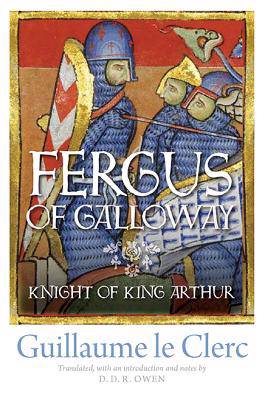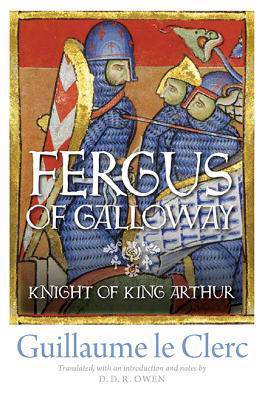
- Afhalen na 1 uur in een winkel met voorraad
- Gratis thuislevering in België vanaf € 30
- Ruim aanbod met 7 miljoen producten
- Afhalen na 1 uur in een winkel met voorraad
- Gratis thuislevering in België vanaf € 30
- Ruim aanbod met 7 miljoen producten
Zoeken
Omschrijving
The popular Arthurian legends, such as the grail quests of Perceval and Galahad, and the love of Lancelot for Queen Guenevere, have largely overshadowed Scotland's own Arthurian romance. The story of Fergus, one of King Arthur's knights, was known to only a few; it was written in Old French and this prevented its proper recognition as a part of Scottish literary heritage. In Fergus of Galloway, Guillaume le Clerc combines, in a unique Scottish setting, the classic themes and conventions of Arthurian romance - many of which would be familiar to his audience through the work of Chrétien de Troyes and his successors - with a highly individual tone of parody and witty comment. Professor Owen's eloquent and lively translation brings this exciting and much undervalued work to a wider audience.
Professor Owen's introduction outlines the literary techniques employed in Fergus of Galloway and discusses the significance of Guillaume's achievement in the context of other Arthurian romances. Detailed notes help the reader gain a closer understanding of the poet's technique, and two appendices contain useful background information: a translation of the principal episodes in the Perceval Continuations used in Fergus of Galloway; and a new theory on the possible identity of Guillaume.
Professor Owen's introduction outlines the literary techniques employed in Fergus of Galloway and discusses the significance of Guillaume's achievement in the context of other Arthurian romances. Detailed notes help the reader gain a closer understanding of the poet's technique, and two appendices contain useful background information: a translation of the principal episodes in the Perceval Continuations used in Fergus of Galloway; and a new theory on the possible identity of Guillaume.
Specificaties
Betrokkenen
- Auteur(s):
- Uitgeverij:
Inhoud
- Aantal bladzijden:
- 192
- Taal:
- Engels
Eigenschappen
- Productcode (EAN):
- 9781910900239
- Verschijningsdatum:
- 7/08/2018
- Uitvoering:
- Paperback
- Formaat:
- Trade paperback (VS)
- Afmetingen:
- 137 mm x 213 mm
- Gewicht:
- 249 g

Alleen bij Standaard Boekhandel
+ 48 punten op je klantenkaart van Standaard Boekhandel
Beoordelingen
We publiceren alleen reviews die voldoen aan de voorwaarden voor reviews. Bekijk onze voorwaarden voor reviews.











